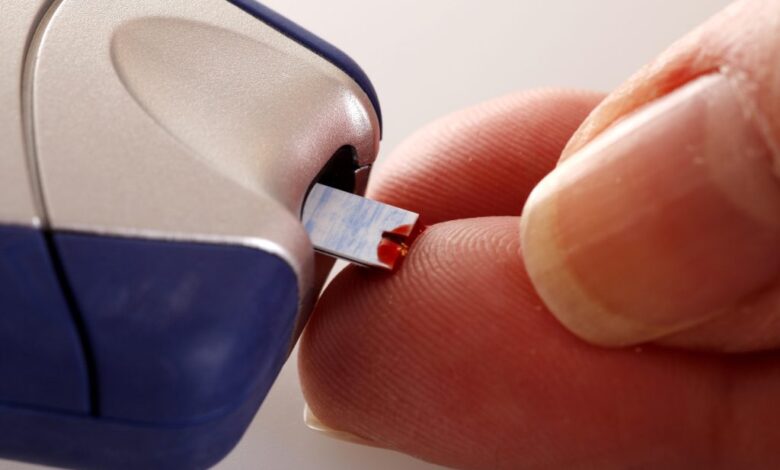Blood glucose test ‘underestimates’ diabetes risk in South Asians

A blood test routinely used for diagnosing and monitoring diabetes may be inaccurate in one out of 13 patients of South Asian decent, according to UK researchers.
In England alone 32,000 people with diabetes and 17,500 with pre-diabetes may be missing out on appropriate care because they carry a genetic variant that means they will have a falsely low result on the routine haemoglobin A1c (HbA1c) test, warned the researchers.
“It’s incredibly important that healthcare professionals are armed with a precise way to evaluate average blood sugar levels over extended periods”
Elizabeth Robertson
Using genetic and health data from more than half a million people living in the UK, including over 60,000 people of Bangladeshi or Pakistani ethnicity, they identified a genetic variant that was extremely rare in most ethnicities but in 7.6% of people of South Asian heritage.
The researchers found that South Asian people in the UK who carried one copy of this genetic variant were diagnosed with type 2 diabetes on average one year later than those without the variant. People who had two copies of the variant were diagnosed on average two years later.
People carrying the genetic variant were found to have falsely lower HbA1c levels, meaning that their blood sugar levels would be significantly underestimated by the widely used HbA1c test.
The researchers warned that this could have severe health consequences, since the HbA1c test was routinely used for diagnosing type 2 diabetes, monitoring patients with pre-diabetes, and for guiding treatment decisions.
The researchers warned that relying on inaccurate HbA1c results could mean that people were missing out on timely and appropriate treatments required to prevent long-term complications, including heart attacks, strokes, amputations and sight loss.
Additional blood sugar testing, such as fasting glucose and oral glucose tolerance tests, plus alternative monitoring pathways might be needed in South Asian patients with the variant, the researchers said.
The study findings are set to be presented at this year’s Diabetes UK Professional Conference held in London on 17-19 April 2024.
Lead researcher Dr Miriam Samuel, from Queen Mary University of London, said: “Many genetic variants linked to red blood cell conditions are ultra-rare amongst the Northern Europeans who have historically dominated genetic studies.
“We demonstrate one such variant that is carried by 7.6% of South Asians, which could affect the accuracy of HbA1c and cause delays in diabetes diagnosis,” she said.
Dr Samuel added that studies like hers, in populations not traditionally focused on by genetic research, were “vital to understanding the causes of diabetes inequalities in these communities”.
Dr Elizabeth Robertson, director of research at Diabetes UK, said that the link between ethnicity and the accuracy of the HbA1c test identified in this research needed to be “urgently investigated further”.
“It’s incredibly important that healthcare professionals are armed with a precise way to evaluate average blood sugar levels over extended periods,” she said.
“Without this, they are navigating in the dark and potentially at risk of overlooking cases of type 2 diabetes,” Dr Robertson said.
She added: “Every individual at risk or with diabetes, regardless of their background, deserves equal access to effective diabetes care to live a healthy life and mitigate long-term diabetes complications.”






